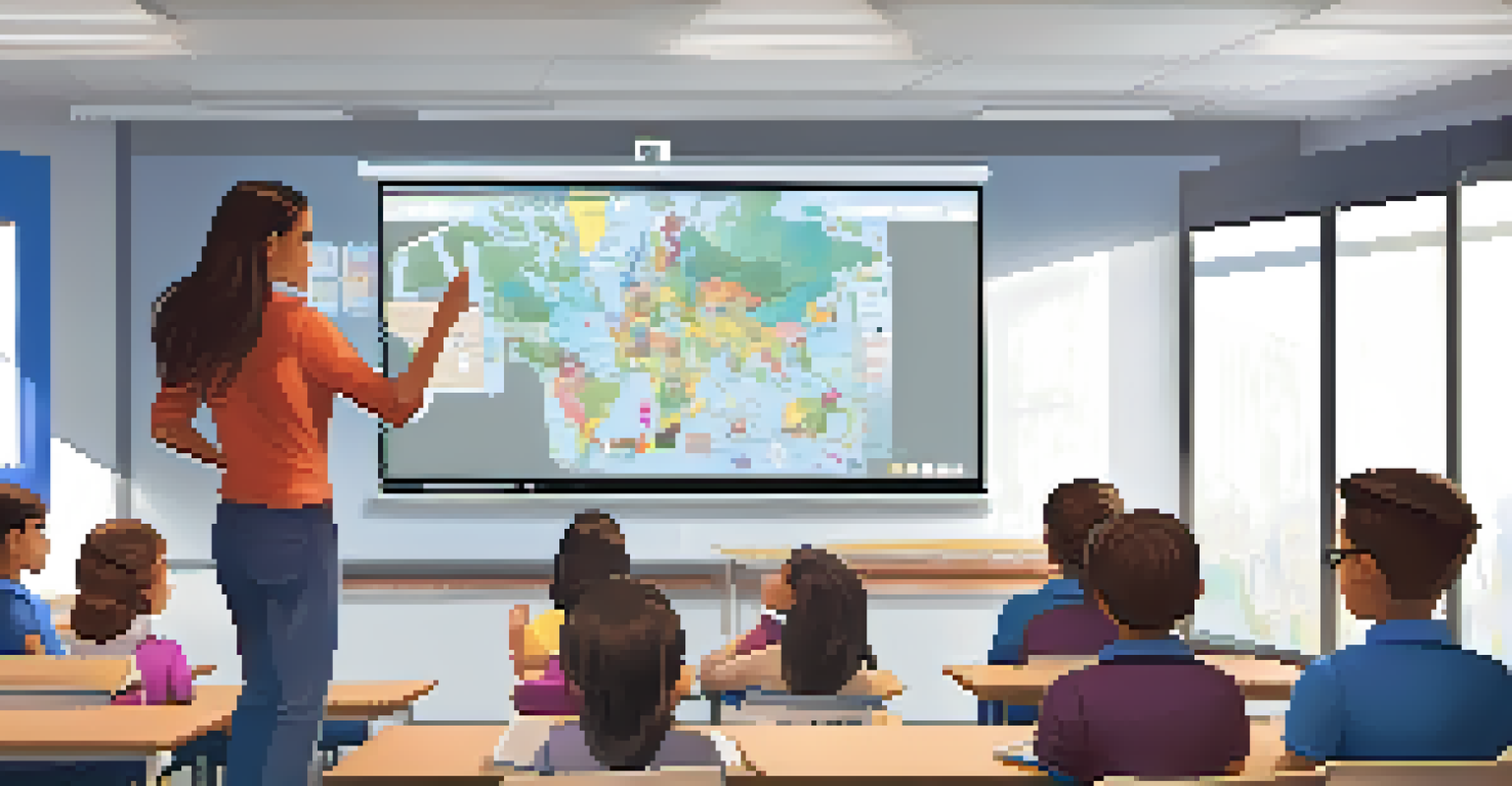Effective Leadership in Adult Learning Environments

Understanding the Unique Needs of Adult Learners
Adult learners bring a wealth of experience to the classroom, making it essential to recognize their unique needs. Unlike traditional students, adults often juggle various responsibilities, such as work and family, which can impact their learning schedules. Therefore, it's crucial for leaders to develop flexible learning environments that accommodate these demands.
Education is the most powerful weapon which you can use to change the world.
Moreover, adult learners are typically self-directed and motivated by practical applications of their education. Effective leaders should encourage this autonomy by fostering an environment where learners can set personal goals and engage in collaborative problem-solving. This not only enhances learning but also builds a sense of community among participants.
By understanding and addressing these needs, leaders can create a more inclusive and effective learning atmosphere. Tailoring instruction to leverage adult learners' experiences can lead to richer discussions and deeper insights, making the learning process more relevant and engaging.
Creating a Supportive Learning Environment
A supportive learning environment is key to fostering success in adult education. Leaders should strive to create a safe space where learners feel comfortable sharing their thoughts and experiences. This can be achieved by promoting open communication and encouraging questions, allowing learners to express themselves freely without fear of judgment.

Additionally, incorporating various teaching methods can cater to different learning styles, further enhancing the supportive atmosphere. For instance, combining lectures with hands-on activities or group discussions can engage learners more effectively. This variety not only keeps the sessions dynamic but also ensures that all participants can thrive.
Ultimately, a supportive environment helps learners build confidence and encourages them to take risks in their learning. When adults feel valued and supported, they are more likely to engage deeply with the material, leading to better learning outcomes and personal growth.
Encouraging Collaboration and Peer Learning
Collaboration is a powerful tool in adult learning environments, as it allows learners to share their diverse perspectives and expertise. Leaders should facilitate opportunities for group work and discussions, where participants can learn from each other. This not only enriches the learning experience but also helps build a sense of community among learners.
Tell me and I forget. Teach me and I remember. Involve me and I learn.
Peer learning fosters accountability and encourages individuals to take ownership of their education. When learners collaborate, they can challenge each other’s ideas, leading to deeper understanding and critical thinking. It also creates an opportunity for participants to develop essential interpersonal skills that are valuable in both personal and professional settings.
By embracing collaboration, leaders can tap into the collective knowledge of the group. This approach not only enhances the learning experience but also builds lasting connections among participants, which can extend beyond the classroom.
Setting Clear Expectations and Goals
Clear expectations and goals are fundamental for effective leadership in adult learning environments. Leaders should communicate learning objectives at the outset, ensuring that everyone understands the desired outcomes of the course. This clarity helps guide learners in their journey and provides a roadmap for what they are expected to achieve.
Additionally, involving participants in setting their own goals can increase motivation and commitment. When learners take part in defining their objectives, they are more likely to feel a sense of ownership over their learning process. This involvement can lead to enhanced engagement and a greater likelihood of achieving those goals.
Regularly revisiting these expectations throughout the course can also help keep learners on track. Leaders should provide feedback and support to ensure that participants stay focused and motivated, ultimately leading to a more productive learning experience.
Utilizing Technology to Enhance Learning
In today's digital age, leveraging technology can significantly enhance adult learning experiences. Leaders should explore various digital tools that facilitate learning, such as online discussion forums, webinars, and interactive content. These resources can make learning more accessible, especially for adults with busy schedules.
Moreover, technology can provide opportunities for personalized learning. For instance, online platforms can offer tailored content based on individual progress and preferences, allowing learners to engage at their own pace. This adaptability is a crucial factor in meeting the diverse needs of adult learners.
However, it's essential for leaders to ensure that all participants are comfortable using these technologies. Providing training or resources on how to navigate digital tools can help alleviate any anxiety and promote a more inclusive learning environment.
Fostering Continuous Improvement and Feedback
Continuous improvement is vital in adult learning environments. Leaders should create a culture where feedback is not only welcomed but actively sought after. This can be achieved through regular check-ins and evaluations, allowing learners to express their thoughts on the course structure and content.
Constructive feedback helps identify areas for improvement, ensuring that the learning experience remains relevant and effective. Furthermore, it encourages learners to reflect on their own progress and recognize the value of their input. This cycle of feedback and improvement fosters a growth mindset among participants.
Ultimately, by prioritizing continuous improvement, leaders can adapt their strategies to better meet the needs of their learners. This responsiveness not only enhances the educational experience but also demonstrates a commitment to the success of each individual.
Building Leadership Skills Among Participants
A key aspect of effective leadership in adult learning is empowering participants to develop their own leadership skills. Leaders can create opportunities for learners to take on roles within group activities, encouraging them to share their knowledge and guide discussions. This not only builds confidence but also promotes a sense of ownership in the learning process.
Additionally, providing resources and training focused on leadership development can further enhance participants' skills. Workshops or seminars on topics such as communication, conflict resolution, and team dynamics can equip learners with the tools needed to lead effectively in their personal and professional lives.

By investing in the leadership growth of participants, leaders not only enrich the learning experience but also foster a new generation of leaders who can make a positive impact in their communities and workplaces.